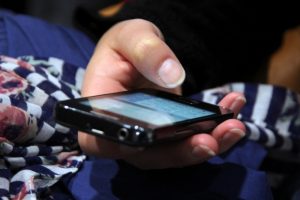As discussed in a recent article from The Economist, while the media is often discussing the very real problems of gun violence in America, far more people are killed in a fatal car accidents, and and an even greater number of victims are inured.
 Looking at the numbers, around 40,000 people will die in car crashes across the U.S. each year. Around 10,000 (roughly 25 percent) of these deaths are caused by drunk driving crashes. This means that approximately a quarter of all traffic fatalities in the nation would not have occurred if those drivers decided to either not drink to the point of intoxication or decided not to get behind the wheel after becoming intoxicated. For this reason, whatever can be done within reason to prevent drunk driving accidents in Boston and other cities and towns across America probably should be done. In some cases, were are talking about extensive lobbying efforts by groups such as Mothers’ Against Drunk Driving (MADD). This group has done a lot to help reduce the numbers of drunk driving accidents, including working to raise the national drinking age and establish a national blood alcohol content (BAC) limit in terms of drinking and driving. That national limit is 0.08 grams of alcohol per hundred milliliters of blood, as most people are aware.
Looking at the numbers, around 40,000 people will die in car crashes across the U.S. each year. Around 10,000 (roughly 25 percent) of these deaths are caused by drunk driving crashes. This means that approximately a quarter of all traffic fatalities in the nation would not have occurred if those drivers decided to either not drink to the point of intoxication or decided not to get behind the wheel after becoming intoxicated. For this reason, whatever can be done within reason to prevent drunk driving accidents in Boston and other cities and towns across America probably should be done. In some cases, were are talking about extensive lobbying efforts by groups such as Mothers’ Against Drunk Driving (MADD). This group has done a lot to help reduce the numbers of drunk driving accidents, including working to raise the national drinking age and establish a national blood alcohol content (BAC) limit in terms of drinking and driving. That national limit is 0.08 grams of alcohol per hundred milliliters of blood, as most people are aware.
However, as discussed in this article, sometimes changes come as a result of the work of private companies, even if the goal of these companies is primarily to make a profit and not help society. This is not to say that companies cannot strive to do both, but there is little question that, for most companies, profit comes first.
In this case, we are talking about ridesharing companies such as Uber and Lyft. Both companies perform basically the same service. A user can use his or her smartphone to call for a ride and gets to choose the level of service for that ride, ranging from a shared vehicle to a private black car or SUV.
While these companies offer the same basic service as a taxi, due to the fact that the app handles the hailing of the vehicle and the person does not have to actually pay the driver with cash or credit, as the app takes car of the transaction as well, people seem much more willing to take an Uber than hail a cab. Another reason people use these services is because, when you would call a taxi dispatcher and try to get a ride at needed time, there were often many problems or delays. In the cases of these apps, a rider can summon a vehicle to basically any location and see when the car will be arriving using a real time locator.
As our Boston drunk driving accident attorneys have seen, many researchers are working on testing these assumptions, and one of the ways they do this is by look at the numbers of drunk driving accidents in the same area before and after these apps came on the market. As it turns it out, in some areas, such as cities were ridesharing is more common and more heavily used, there has been a reduction in the number of drunk driving accidents. However, there will need to be a lot more work done to prove causation, as this could be coincidental.
If you or someone you love has been injured a Boston drunk driving accident, call for a free and confidential appointment at (617) 777-7777.
Additional Resources:
Ride-hailing apps may help to curb drunk driving, April 4, 2017, The Economist
More Blog Entries:
Former NFL Quarterback Vince Young Given Probation for Drunk Driving, Feb. 7, 2017, Boston Drunk Driving Accident Lawyer Blog
 Boston Drunk Driving Accident Lawyer Blog
Boston Drunk Driving Accident Lawyer Blog

